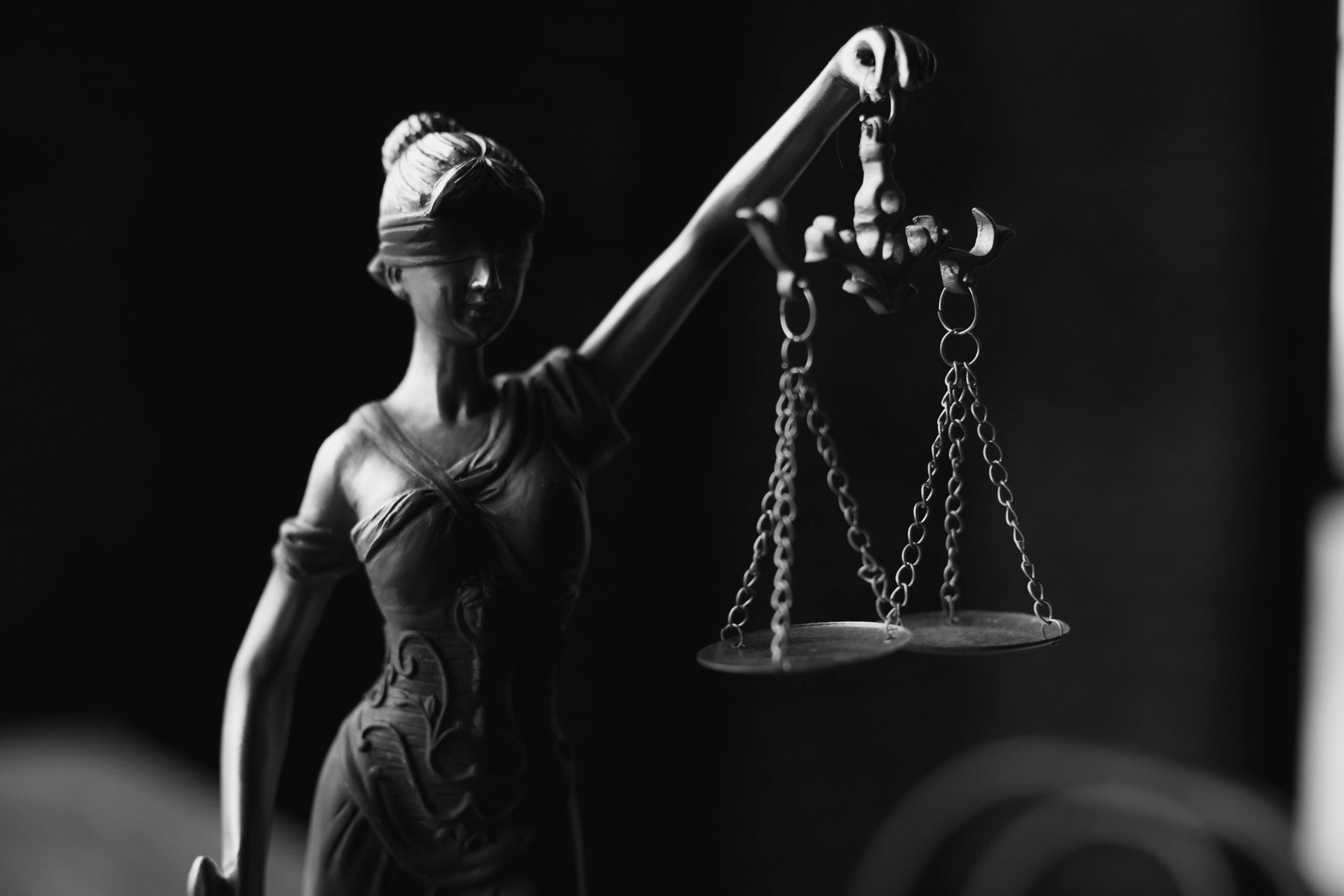What is The Difference Between Civil Law and Criminal Law?
Did you know that in the US, there are over 30 million civil cases filed each year, compared to just 6 million criminal cases? Or that while only 2% of criminal cases go to trial, and a whopping 90% of civil cases are settled out of court? The world of law is a complex subject, with civil and criminal law forming its two main threads. But what exactly sets them apart?
What’s the Difference Between Civil Law and Criminal Law?
Simply put, civil law deals with disputes between individuals or organizations, aiming to compensate the wronged party, while criminal law involves offenses against society as a whole, with the government prosecuting individuals for violations of criminal statutes.
Now, let’s dive deeper into the distinctions:
Purpose and Parties Involved
| Aspect | Civil Law | Criminal Law |
| Primary Purpose | Resolve Disputes, Compensate Victims | Punish Offenders, Protect Society |
| Parties | Plaintiff vs. Defendant | Government vs. Defendant |
| Initiator of Action | Individual or Organization | Government Prosecutor |
Burden of Proof and Outcomes
| Aspect | Civil Law | Criminal Law |
| Burden of Proof | Preponderance of evidence (>50% likely) | Beyond reasonable doubt (>99% certain) |
| Typical Outcomes | Monetary Damages, Injunctions | Fines, Imprisonment, Probation |
| Jury Requirement | Optional in Most Cases | Required for Serious Offenses |
Examples of Cases
- Civil Law Cases:
- Breach of contract disputes
- Property boundary disagreements
- Divorce and child custody proceedings
- Personal injury claims (e.g., slip and fall accidents)
- Employment discrimination lawsuits
- Intellectual property infringements
- Defamation (libel or slander) cases
- Medical malpractice suits
- Landlord-tenant disputes
- Product liability claims
- Criminal Law Cases:
- Theft and burglary
- Assault and battery
- Drug possession and trafficking
- Murder and manslaughter
- Rape and sexual assault
- White-collar crimes (e.g., fraud, embezzlement)
- Domestic violence
- Driving under the influence (DUI)
- Cybercrime and identity theft
- Hate crimes
Real-Life Scenarios: When Law Meets Reality
- The Fender Bender Fiasco
- Civil Case: John rear-ends Mary’s car at a stoplight, causing $5,000 in damage. Mary sues John in small claims court for the repair costs and lost wages from missing work due to the accident. The judge finds John 70% at fault and orders him to pay $3,500 in damages.
- Potential Criminal Case: If it’s discovered that John was texting while driving, he could face criminal charges for reckless driving. The state prosecutor might charge John with a misdemeanor, potentially resulting in fines, license suspension, and even jail time, regardless of the civil case outcome.
- The Corporate Conundrum
- Civil Case: Shareholders of TechCorp sued the company for misrepresenting its financial statements, claiming they lost millions when the stock price plummeted after the truth came out. They seek damages to recover their losses. After months of negotiations, TechCorp settles for $50 million without admitting wrongdoing.
- Potential Criminal Case: The SEC investigates and finds evidence that TechCorp’s CEO intentionally falsified financial reports. The Department of Justice filed criminal fraud charges against the CEO. If convicted, he could face up to 20 years in prison and millions in fines, separate from the civil settlement.
- The Neighborly Dispute
- Civil Case: Homeowner Alice sues her neighbor Bob for cutting down three 100-year-old oak trees that straddled their property line. Alice claims the trees’ removal decreased her property value by $30,000 and seeks compensation. The court orders a survey, determines two of the trees were on Alice’s property and awards her $20,000 in damages.
- Potential Criminal Case: If Bob had trespassed onto Alice’s marked property and intentionally vandalized the trees out of spite, he could face criminal charges for trespassing and vandalism. The local prosecutor might charge Bob with a misdemeanor, potentially resulting in fines and probation.
- The Medical Mishap
- Civil Case: Patient Paula sued Dr. Smith and Memorial Hospital for medical malpractice, claiming a surgical error led to permanent nerve damage. Paula seeks $500,000 in damages for medical expenses, lost wages, and pain and suffering. After a week-long trial, the jury finds in Paula’s favor and awards her $400,000.
- Potential Criminal Case: During the investigation, it was discovered that Dr. Smith was under the influence of narcotics during the surgery. The state medical board revoked his license, and the district attorney charged Dr. Smith with criminal negligence and illegal drug use, which could result in imprisonment and hefty fines.
- The Intellectual Property Infringement
- Civil Case: Tech giant MegaCorp sues startup InnoTech for patent infringement, claiming InnoTech’s new smartphone features violate MegaCorp’s existing patents. MegaCorp seeks an injunction to stop InnoTech from selling the phones and demands $10 million in damages. After a lengthy legal battle, the court rules in MegaCorp’s favor, granting the injunction and awarding $5 million in damages.
- Potential Criminal Case: During discovery, evidence emerges that InnoTech’s founder bribed a former MegaCorp employee to steal confidential design documents. The FBI investigates, leading to criminal charges of industrial espionage against both the founder and the former employee, potentially resulting in significant prison time and fines.
Civil Attorney versus Criminal Attorneys: Different Fields, Different Skills in Legal Representation
While both civil and criminal attorneys are legal professionals, their focus and expertise differ significantly. Civil attorneys specialize in contracts, property law, or personal injury, often negotiating settlements.
Criminal defense attorneys focus on protecting the rights of the accused, navigating complex criminal procedures, and mounting defenses in court.
20 of the Most Frequently Asked Questions Regarding Criminal and Civil Law
- Q: What’s the main difference between civil and criminal offenses? A: Civil law deals with disputes between individuals or organizations, while criminal law involves offenses against society, prosecuted by the government.
- Q: Can the same criminal act result in both civil and criminal cases? A: Yes, a single act can lead to both civil and criminal proceedings. For example, a drunk driving accident could result in criminal proceeding charges and a civil claim for damages.
- Q: Is it possible to go to jail in a civil case? A: While rare, it is possible to be jailed for contempt of court in civil cases, typically for refusing to follow court orders.
- Q: Do I need legal representation for a civil case? A: While not always required, having a skilled lawyer can significantly improve your chances of a favorable outcome in civil litigation.
- Q: Can a criminal case turn into a civil case? A: Yes, a criminal case can often be followed by a civil case. For example, after a criminal assault trial, the victim might sue the perpetrator for medical expenses.
- Q: What’s the difference in the burden of proof between civil and criminal cases? A: Criminal cases require proof “beyond a reasonable doubt,” while a civil court case uses “preponderance of evidence” (more likely than not).
- Q: Who brings charges in criminal and civil cases? A: In criminal cases, the government (usually a prosecutor) brings charges. In civil cases, the aggrieved private party (plaintiff) files a lawsuit.
- Q: Can you appeal both civil and criminal cases? A: Both types of cases can be appealed, but the process and grounds for appeal may differ.
- Q: What’s the difference in potential outcomes between civil and criminal cases? A: Criminal cases can result in fines, probation, or imprisonment. Civil cases typically result in monetary damages or court orders.
- Q: Are juries used in both civil and criminal trials? A: While juries are common in criminal trials, they’re less frequent in civil cases. Many civil disputes are decided by a judge alone.
- Q: Can you be found guilty in a criminal trial but not liable in a civil trial for the same act? A: Yes, due to different standards of proof. The most famous example is the O.J. Simpson case.
- Q: What’s the statute of limitations difference between civil and criminal cases? A: It varies by jurisdiction and type of offense, but generally, civil cases have shorter statutes of limitations than criminal cases.
- Q: Can corporations be charged in criminal cases? A: Yes, corporations can face criminal charges, usually resulting in fines or other penalties.
- Q: Is evidence handled differently in civil and criminal cases? A: Yes, criminal cases have stricter rules about admissible evidence to protect the defendant’s rights.
- Q: Can you represent yourself in both civil and criminal cases? A: Yes, but it’s generally not advisable, especially in criminal cases where the stakes are higher.
- Q: What’s the difference in settlement options between civil and criminal cases? A: Civil cases can often be settled out of court. Criminal cases may involve plea bargains but still require court approval.
- Q: Are all civil cases about money? A: No, while many seek monetary damages, others might seek injunctions or specific performance of a contract.
- Q: Can victims force the state to press criminal charges? A: Generally no, the decision to prosecute lies with the state, not the victim.
- Q: What’s the difference in privacy protections between civil and criminal cases? A: Criminal cases often have stronger privacy protections for defendants due to constitutional rights.
- Q: Can civil judgments lead to criminal charges? A: While rare, if evidence of criminal activity emerges during a civil case, it could potentially lead to criminal charges.
Conclusion: Navigating the Legal Landscape
Whether you’re facing a civil dispute or criminal charges, understanding the nuances of each legal realm is crucial. The stakes are high in both arenas, and the complexity of the law can be overwhelming.
If you need expert legal guidance, consider reaching out to a competent legal firm for criminal matters or civil disputes. These firms specialize in their respective fields, ensuring you get the tailored representation you need.
Remember, the law is a powerful tool for justice, but it’s also a complex system. Whether you’re seeking compensation in a civil matter or defending your rights in a criminal case, professional legal counsel can be your beacon in the fog of legal complexities.







